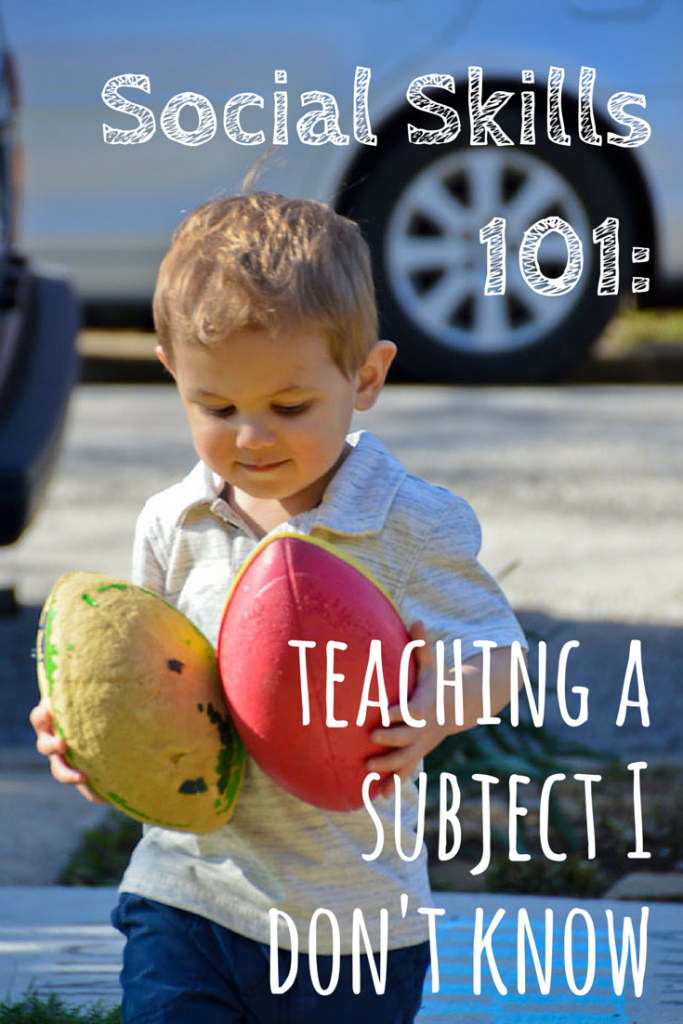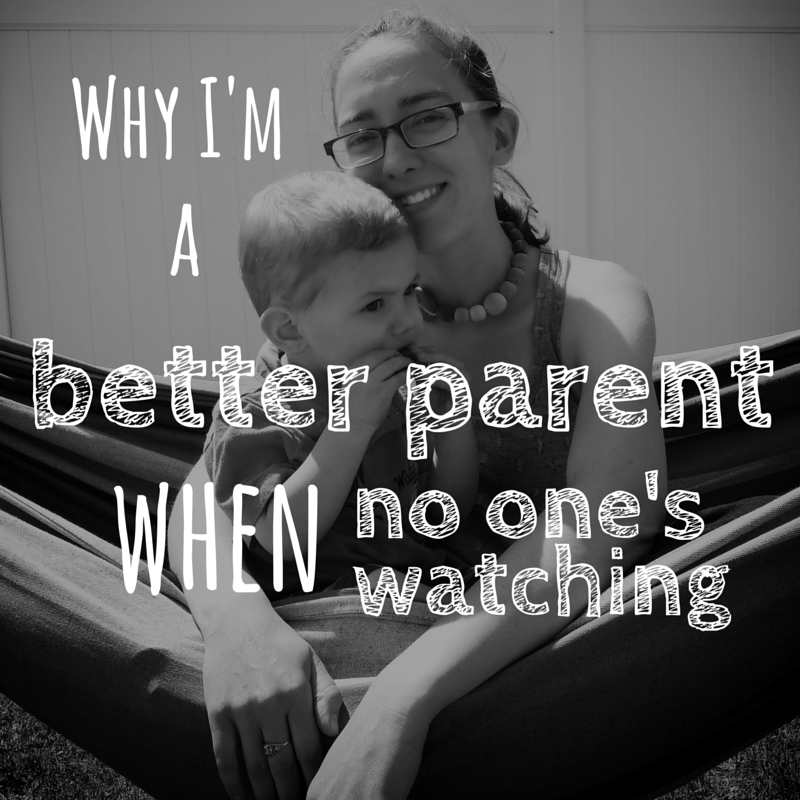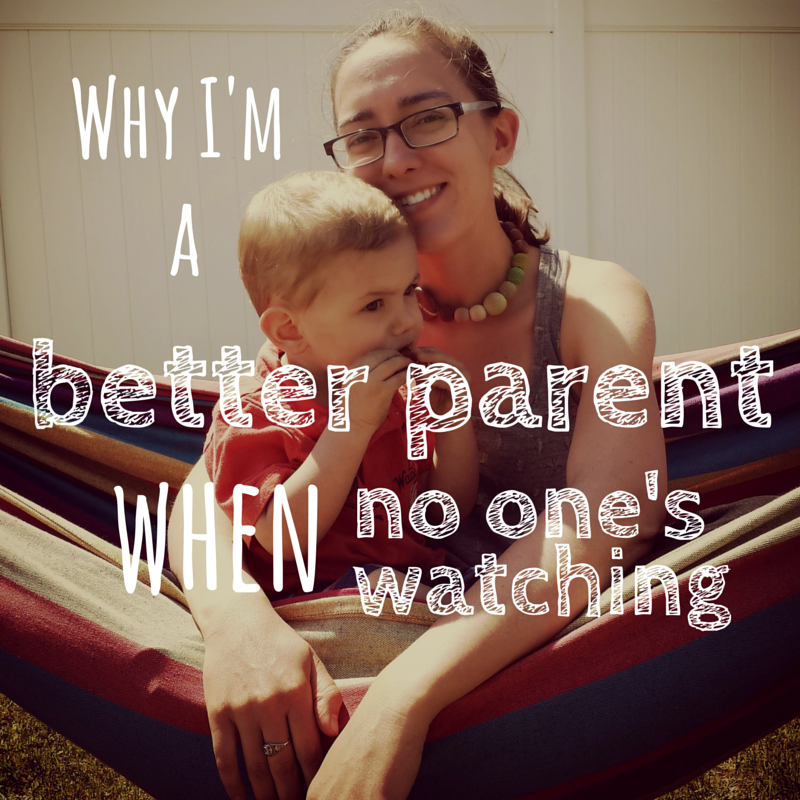
Earlier this year, we read Vicki Hoefle’s Duct Tape Parenting as a family. Hoefle’s non-interventionist style, with an emphasis on nurturing both executive function and family connectedness, is a perfect fit for us. I suspect many other families (ADHD and not) will find the same.
And yet.
And yet, just the other day, I broke the rules — bigtime. There I stood, with my hand gripping R.’s tiny little wrist, telling him firmly, don’t grab that from her.
It was a typical spring afternoon in our neighborhood: sunny, warm, several families congregated outside for post-nap playtime.
R. stared at me and whined, but thankfully (for me) didn’t fight me when I suggested he choose another toy.
Later, I asked myself, what example am I setting here?
Am I showing my son that even though we have a system of expectations, communication, and respect that works for our family, I’m unwilling to defend it in public? That what Other People think is more important than my relationship with him?
You bet, and I’m not proud of it.
At the same time, I don’t want to be That Parent — in this case, That Parent who allows my kid to walk up and grab a toy from my neighbor’s sweet, adorable, smaller child.
For ADHD adults, a lifetime of social struggles
I suspect many ADHD adults teeter along this line. Our families are often a little different, and that’s okay. We’re used to being different.
But as parents, we don’t always want our kids to be different. Reconciling our differences with friends’ parenting norms can feel impossible for ADHD adults already lacking social confidence.
I’ve struggled with social skills since kindergarten. Elementary and middle school were tough, but by high school I’d joined what one of my teachers referred to as the “Fringe of Weirdness.” Thanks to the FoW, not fitting in became a way of fitting in.
As an adult, and especially as a parent, I feel older, more tired — mostly more tired of myself. To the chagrin of my 13-year-old self, who listened to the Sex Pistols and dyed her hair with Kool Aid, I wish I could be more like everyone else.
In a group of parents, even parents I know well, I struggle to read social cues and figure out where and how I fit in. Before play dates, I remind myself to make eye contact, ask questions, and pay attention to how long I’ve been speaking without a break. I try to observe others’ behavior to make sure I’m not too far off.
Often, I forget all of these strategies and agonize over my behavior hours later. During the preschool years, my people skills will define my child’s social life.
It’s not hard to see how, after a lifetime of social illiteracy, I feel disempowered to assert my parenting philosophies in a group.

Leading our children away from the Fringe of Weirdness
In an ecosystem where intervention and hands-on teaching — saying “you need to share,” negotiating turn-taking, mediating conflicts — are almost synonymous with good parenting, expressing dissent feels risky. Failing to follow social norms might make me appear inconsiderate, inattentive, or like I won’t teach positive social behavior (none of which are true).
I love to say “I don’t care what anyone else thinks,” but when it comes to letting others think I’m selfish, inconsiderate, irresponsible, or a poor parent, that’s a big lie.
Not to mention, similarity in parenting styles makes friends — and not just for me. R.’s and my lives are both made richer by our lovely social group and support system. I live in near-constant fear of jeopardizing that for us, especially given my lackluster friend-making skills.
The irony of wanting to look like a good parent
Many, many ADHD adults struggle to maintain close social relationships. It’s understandable not to want to rock the boat now that I’m in such a good place.
However, in trying to make a good impression as a responsible parent, I’m not being the best parent I can be for my kid. It won’t escape him. Once R. gets a little older, he’ll no doubt call me out on it. I want to teach him the confidence and conviction to do so.
Hoefle recommends in her book that we tell others, “I’m raising thinking kids.” But how are parents who already struggle with verbal communication supposed to say that without implying that other parents aren’t? Especially parents we like and respect?
In my long track record of social faux pas, I’ve offended people in conversations with far lower stakes. Our convictions as parents are so strong, our identities as “good parents” so easily challenged, it’s going to take more than “it’s okay, I’m raising a thinking kid.”
But what it will take, I have no idea. Most days, I’m not sure where to begin.
Hey there! Are you enjoying The ADHD Homestead?
Here's the thing: I don't like ads. I don't want to sell your attention to an advertising service run by the world's biggest data mining company. I also value my integrity and my readers' trust above all, which means I accept very few sponsorships/partnerships.
So I'm asking for your support directly. For the cost of one cup of coffee, you can help keep this site unbiased and ad-free.
Below you will find two buttons. The first lets you join our crew of Patreon pals and pledge monthly support for my work. Patrons also have access to my Audioblogs podcast. The second takes you to a simple donation page to pledge one-time or recurring support for The ADHD Homestead, no frills, no strings. Do whichever feels best for you!

